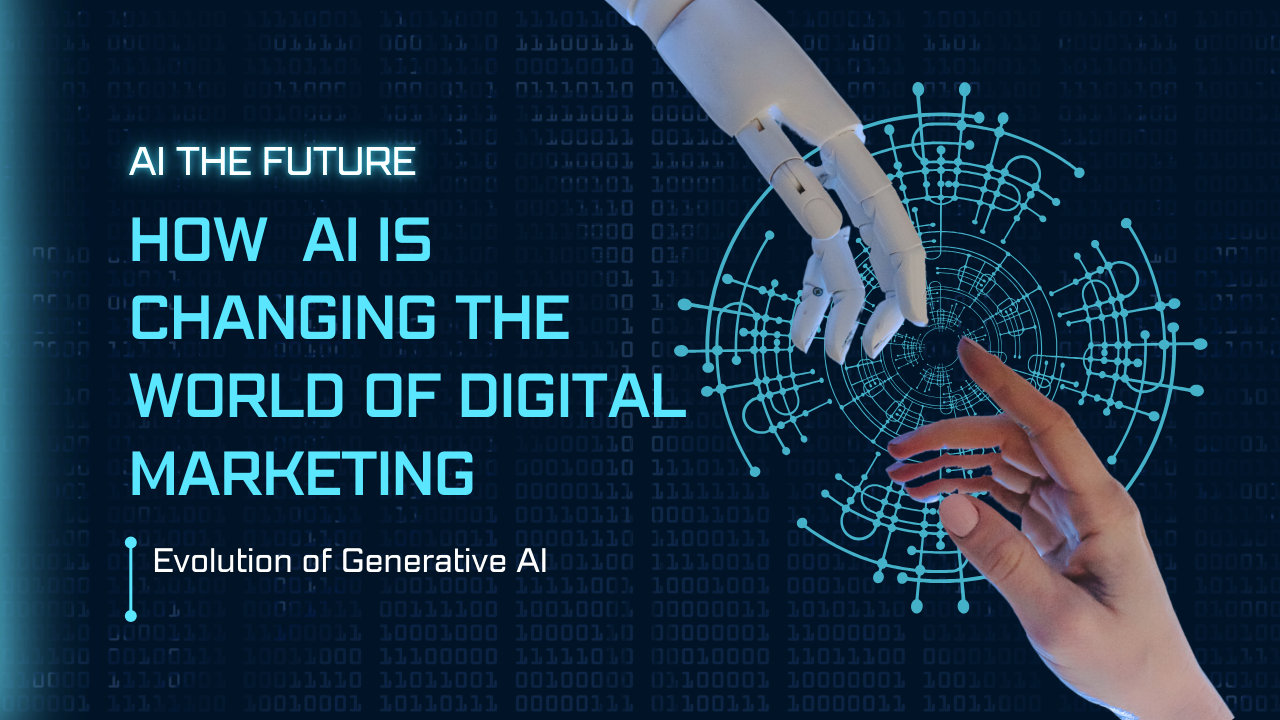
The Evolution of Generative AI: From the History of AI to Its Impact on Human Life and Future Potential
Introduction
Artificial Intelligence (AI) has taken the world by storm, rapidly evolving into one of the most powerful technologies of the modern era. At the heart of this transformation is Generative AI, a branch of AI that focuses on creating data that mimics human creativity, such as text, images, music, and even video. But how did we get here? What is the history of AI, and how does one get started in this fascinating field? More importantly, what impact does AI have on human life, and what does the future hold?
Artificial Intelligence (AI) is one of the most transformative technologies of our time, reshaping industries, economies, and even everyday life. Among its various branches, Generative AI stands out, enabling machines to generate new content, from text and images to music and code, that mimics human creativity. In this blog, we’ll explore the history of AI, how to get started with AI concepts, the profound impact of AI on human life, and the exciting future that lies ahead for this revolutionary technology.
The History of AI
The concept of artificial intelligence (AI) dates back to the mid-20th century. Here’s a brief timeline of key milestones:
- 1950s: Alan Turing proposes the idea of a machine that can simulate human intelligence. His famous Turing Test becomes a foundational concept in AI research.
- 1956: The Dartmouth Conference, organized by John McCarthy and others, marks the official birth of AI as a field. The term “artificial intelligence” is coined here.
- 1960s-70s: Early AI research focuses on problem-solving and symbolic methods. The development of early AI programs like ELIZA, a natural language processing program, begins.
- 1980s: Expert systems gain popularity. These systems use predefined rules and knowledge bases to make decisions and solve specific problems.
- 1990s-2000s: The advent of machine learning algorithms and the increased availability of data and computational power lead to significant advancements. Notable events include IBM’s Deep Blue defeating chess champion Garry Kasparov in 1997.
- 2010s-Present: The rise of deep learning and neural networks brings about breakthroughs in AI capabilities. Generative models like GANs (Generative Adversarial Networks) and transformer-based models like GPT-3 push the boundaries of what AI can achieve.
How to Start with AI Concepts
Starting with AI can seem daunting, but breaking it down into manageable steps can help:
- Learn the Basics: Familiarize yourself with fundamental concepts such as machine learning, neural networks, and data preprocessing. Online courses and tutorials are a great place to start.
- Choose a Programming Language: Python is the most popular language for AI development due to its extensive libraries and frameworks. Learning Python and its libraries like TensorFlow, PyTorch, and scikit-learn is crucial.
- Explore Generative Models: Dive into specific areas of generative AI, such as GANs and VAEs (Variational Autoencoders). Experiment with existing models and understand their underlying principles.
- Work on Projects: Apply your knowledge to real-world projects. Create your own AI models, contribute to open-source projects, or participate in AI challenges and competitions.
- Stay Updated: AI is a rapidly evolving field. Follow research papers, blogs, and industry news to keep up with the latest developments and innovations.
The Impact of AI on Human Life
AI is making profound changes in various aspects of our lives:
- Healthcare: AI-powered diagnostic tools and personalized treatment plans enhance patient care and medical research. AI algorithms can analyze medical images, predict disease outbreaks, and assist in drug discovery.
- Education: AI-driven educational tools and platforms offer personalized learning experiences, adaptive assessments, and virtual tutoring.
- Workplace: Automation of routine tasks through AI improves efficiency and productivity. However, it also raises concerns about job displacement and the need for reskilling.
- Daily Life: From virtual assistants like Siri and Alexa to recommendation algorithms on streaming platforms, AI is integrated into our everyday activities, making life more convenient and connected.
The Future of AI
The future of AI holds exciting possibilities:
- Ethical AI: As AI systems become more integrated into society, addressing ethical considerations, such as bias, privacy, and accountability, will be crucial.
- General AI: Researchers are working towards developing Artificial General Intelligence (AGI), which aims to replicate human cognitive abilities more comprehensively.
- AI and Creativity: Generative AI will continue to push creative boundaries, from generating art and music to designing innovative products and experiences.
- Collaboration and Regulation: Future advancements in AI will require global collaboration and regulatory frameworks to ensure responsible development and deployment.


